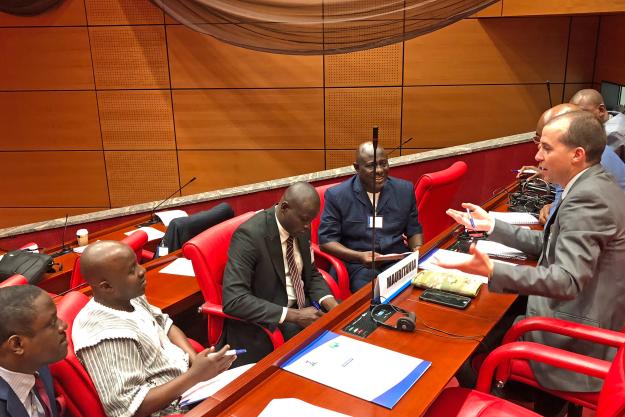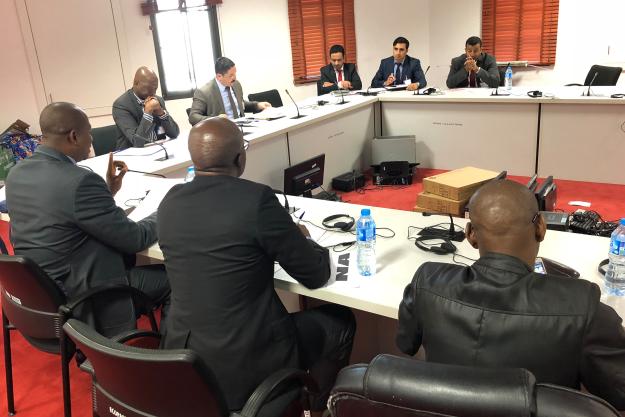
National Authority representatives along with security and legal experts from the Sahel and West Africa identified possible ways of strengthening their capacities for addressing chemical terrorism
THE HAGUE, Netherlands — 29 October 2018 — National Authority representatives along with security and legal experts from the Sahel and West Africa identified possible ways of strengthening their capacities for addressing chemical terrorism during the workshop on the role of implementing legislation of the Chemical Weapons Convention (CWC) in addressing threats posed by non-State actors, held at the Economic Community of West African States Parliament complex in Abuja, Nigeria, from 16-18 October.
In his opening remarks, Permanent Secretary, Political and Economic Affairs Office and Chairman of the National Authority on the Chemical and Biological Weapons Convention, Mr Gabriel Aduda, pointed out that the risk of non-State actors misusing chemicals constitutes a serious threat to the peace and security of Africa.
“While there may not be many large chemical industries based in Africa, our growing economies bring an influx of chemical imports. These need to be secured from potential misuse, especially by terrorist groups bent on conducting attacks against innocent civilians,” stated Mr Aduda. He noted the critical role of CWC national implementing legislation in addressing this threat, adding that Nigeria anticipates adoption of such measures by early 2019

The participants delved into discussions on chemical terrorism, focusing on coordination among relevant national stakeholders and analysing the factors necessary for risk assessments. They also examined synergies between the obligations under the CWC and under various multilateral treaties on countering terrorism. Consideration was given to domestic penal legislation concomitant with the CWC.
The OPCW Technical Secretariat gave an overview of its activities linked to countering chemical terrorism, discussed the contribution of Article VI of the CWC in preventing the possible hostile use of toxic chemicals, and outlined the national legal provisions that effectively address the threat of chemical terrorism.
The participants stressed the importance of the OPCW’s role in raising awareness as well as providing technical assistance in drafting legislation, customs procedures, developing emergency preparedness and response plans, and laboratory analysis.
Representatives of the UN Office on Drugs and Crime, 1540 Committee, World Customs Organization, Interpol and the US Defense Threat Reduction Agency provided information about their programs in support of their States Parties efforts to counter chemical terrorism.
In addition to Nigeria, representatives from Algeria, Burkina Faso, Cameroon, Cote d’Ivoire, Guinea, Mauritania, Morocco, Niger and Sudan participated in the workshop.
Background
As the implementing body for the Chemical Weapons Convention, the OPCW, with its 193 Member States, oversees the global endeavour to permanently eliminate chemical weapons. Since the Convention’s entry into force in 1997, it is the most successful disarmament treaty eliminating an entire class of weapons of mass destruction.
Over 96% of all chemical weapon stockpiles declared by possessor States have been destroyed under OPCW verification. For its extensive efforts in eliminating chemical weapons, the OPCW received the 2013 Nobel Peace Prize.
More Information
Capacity Building: OPCW Africa Programme
